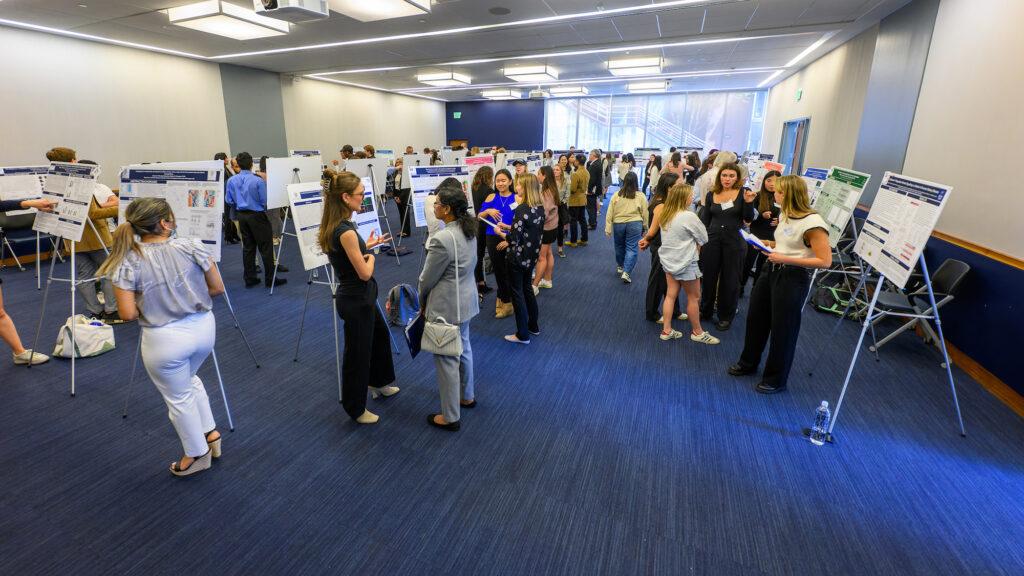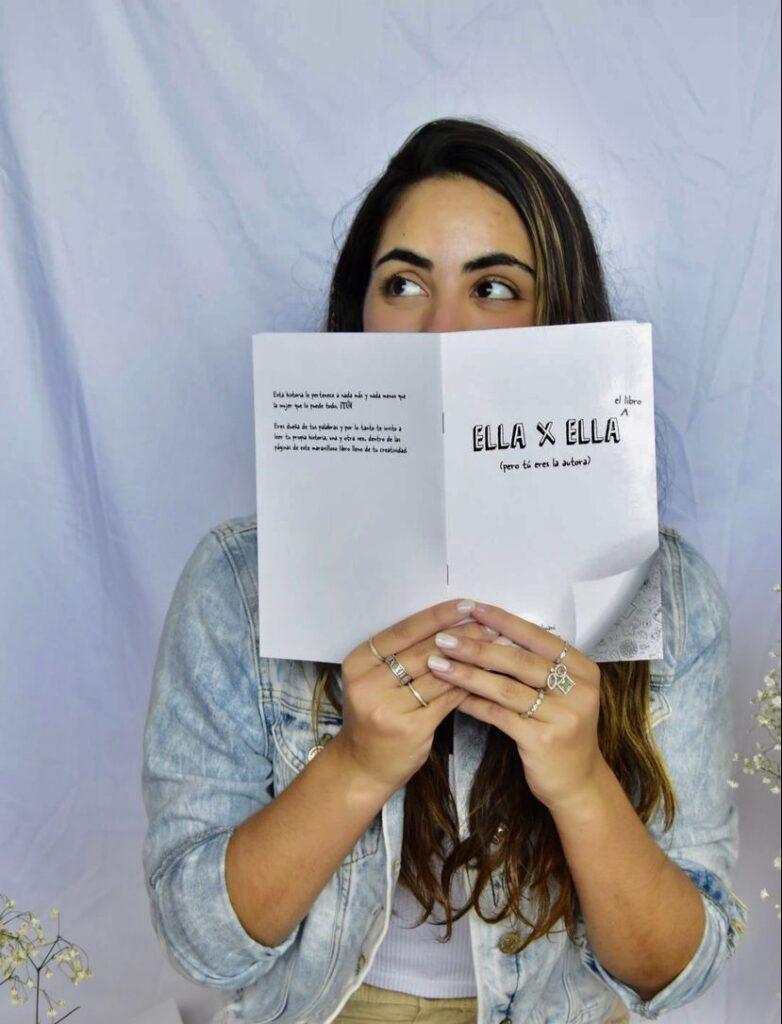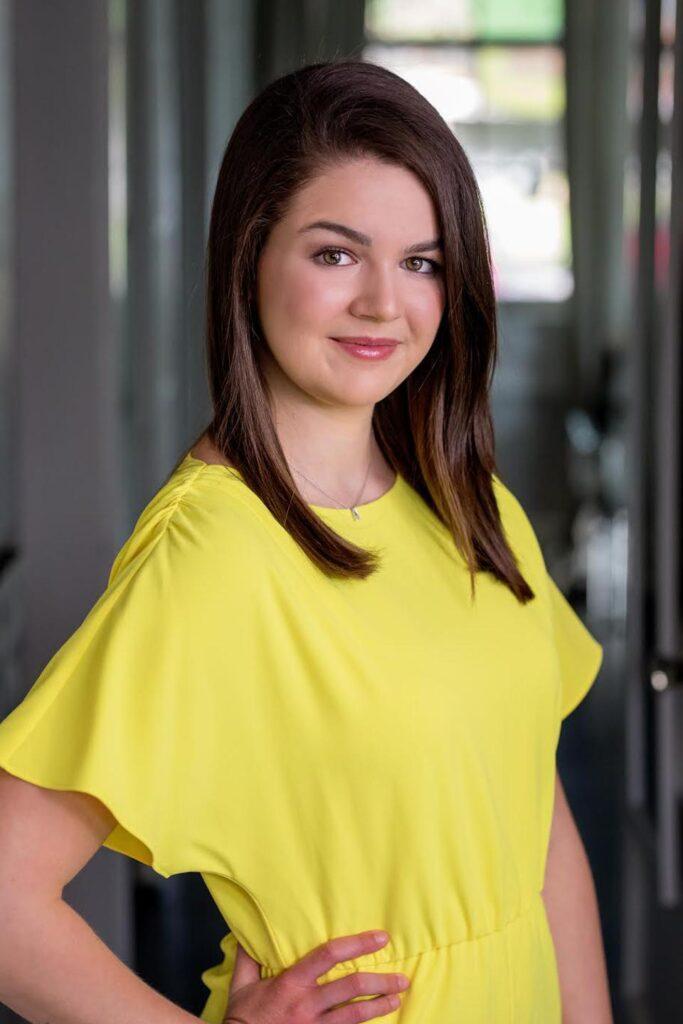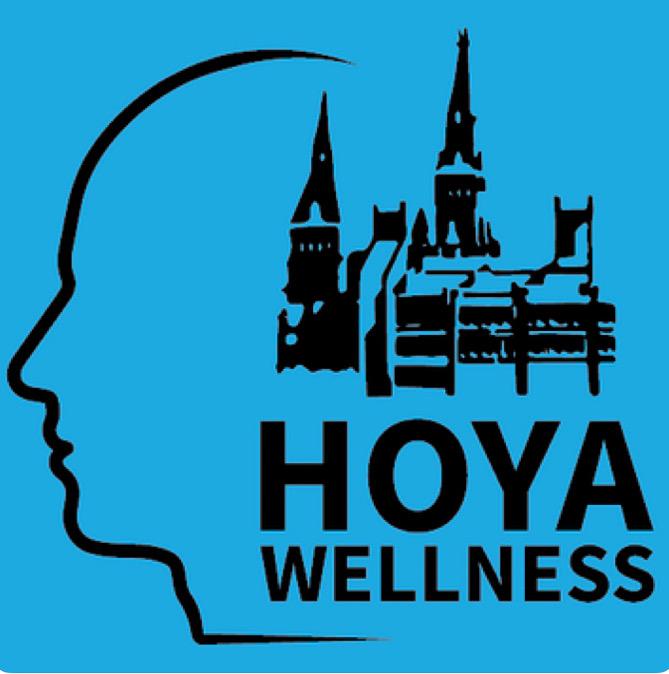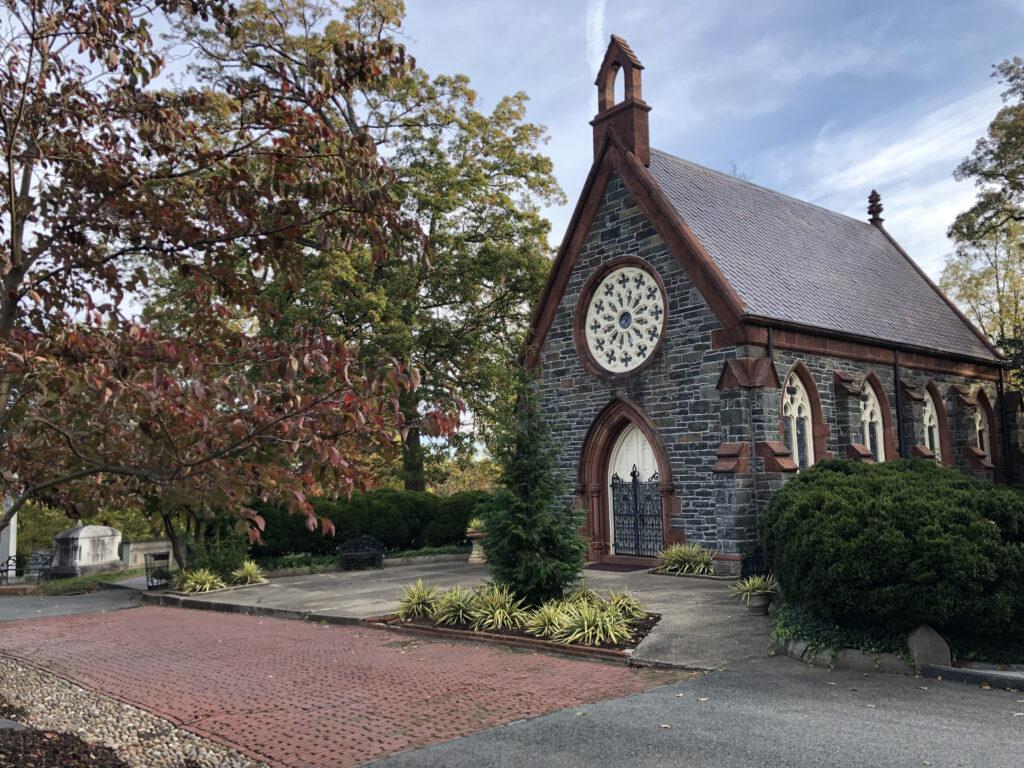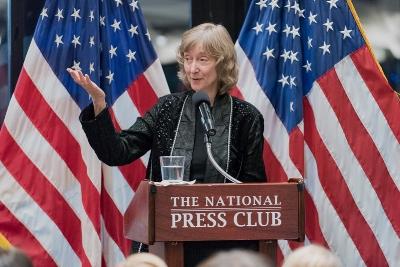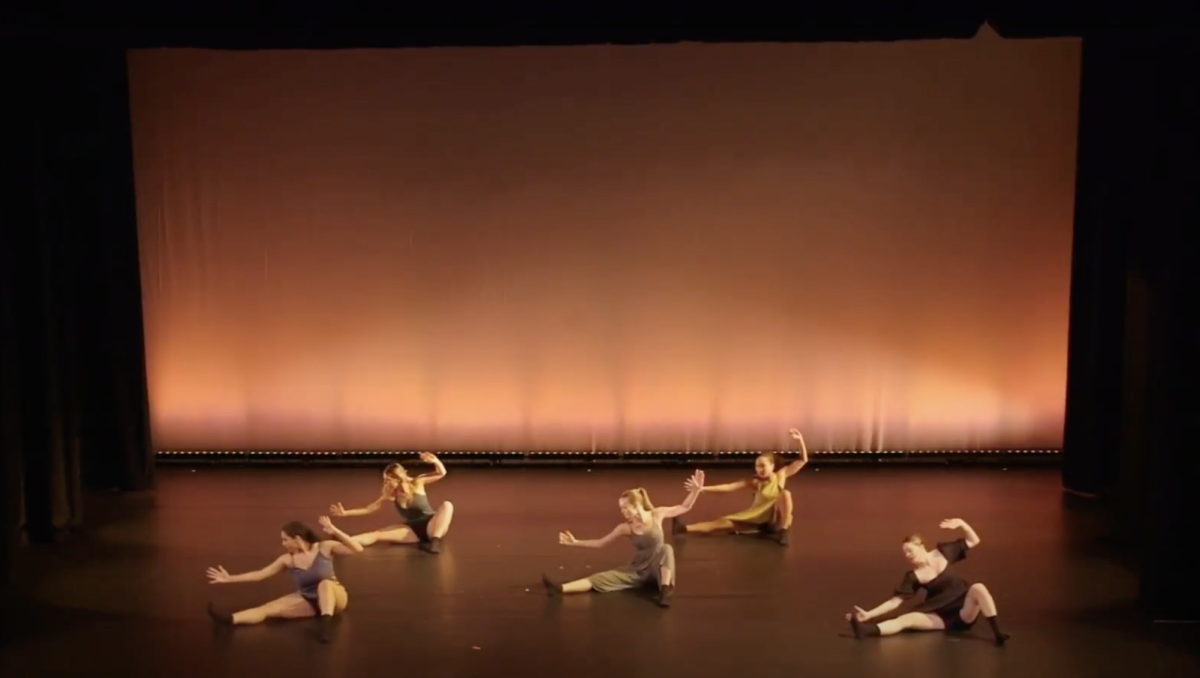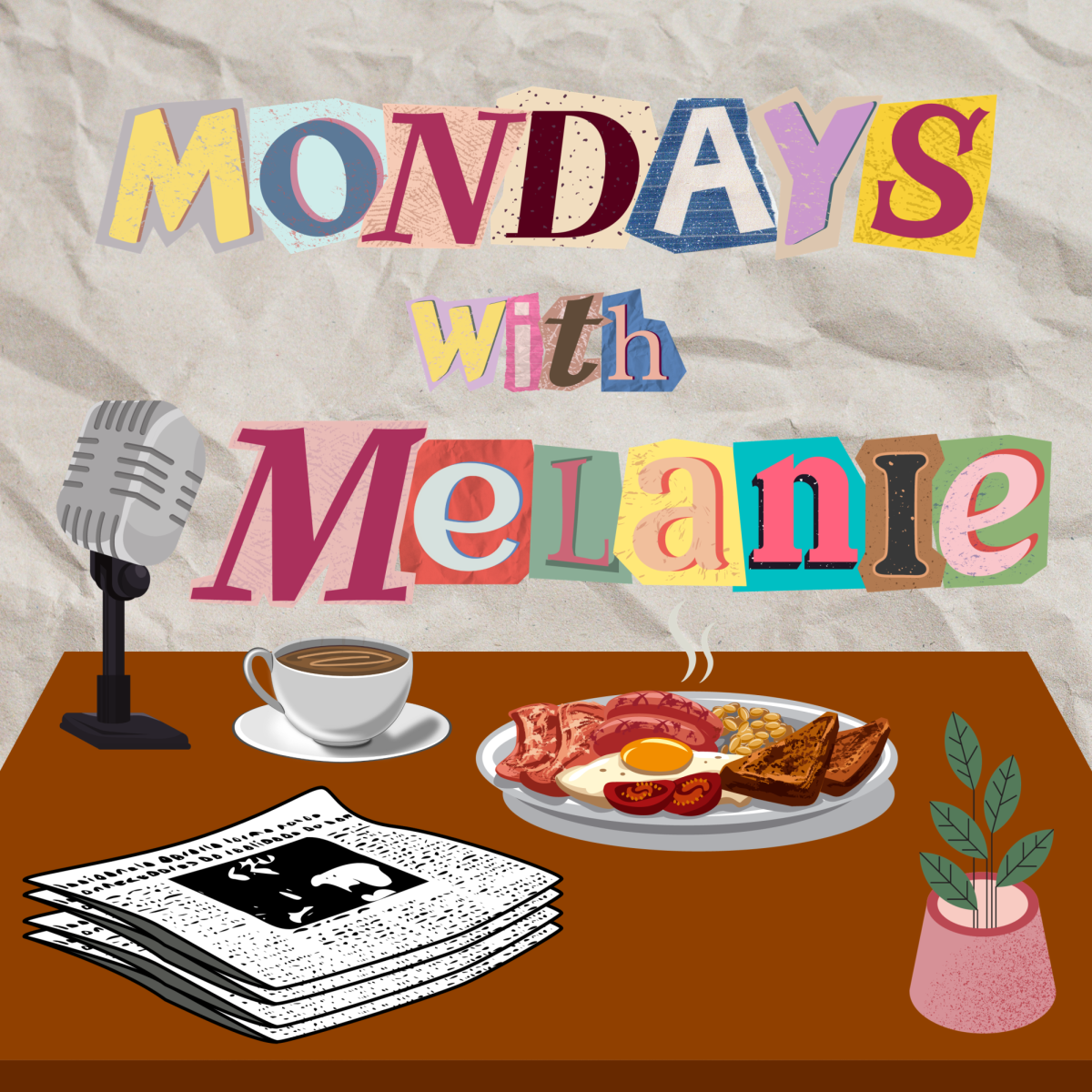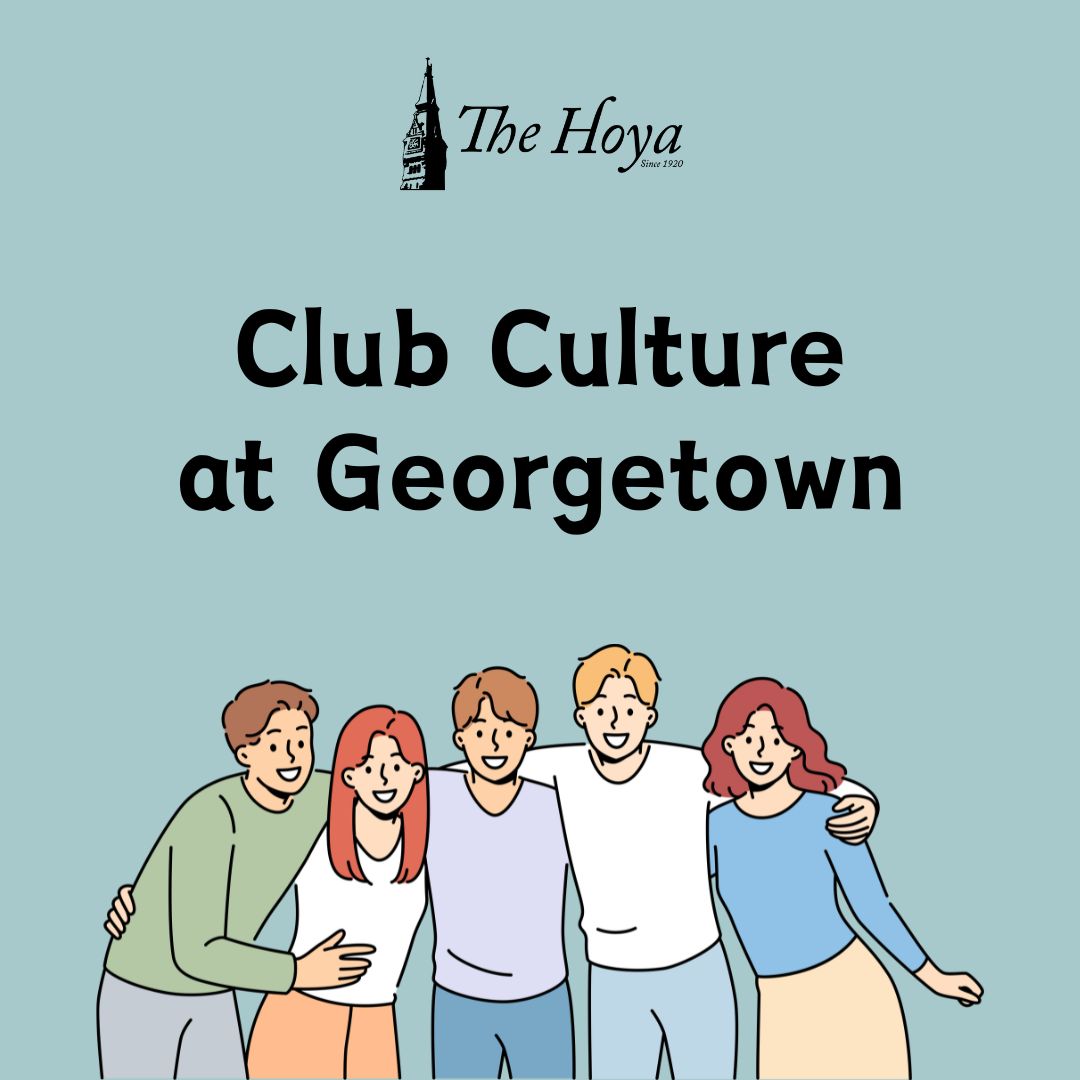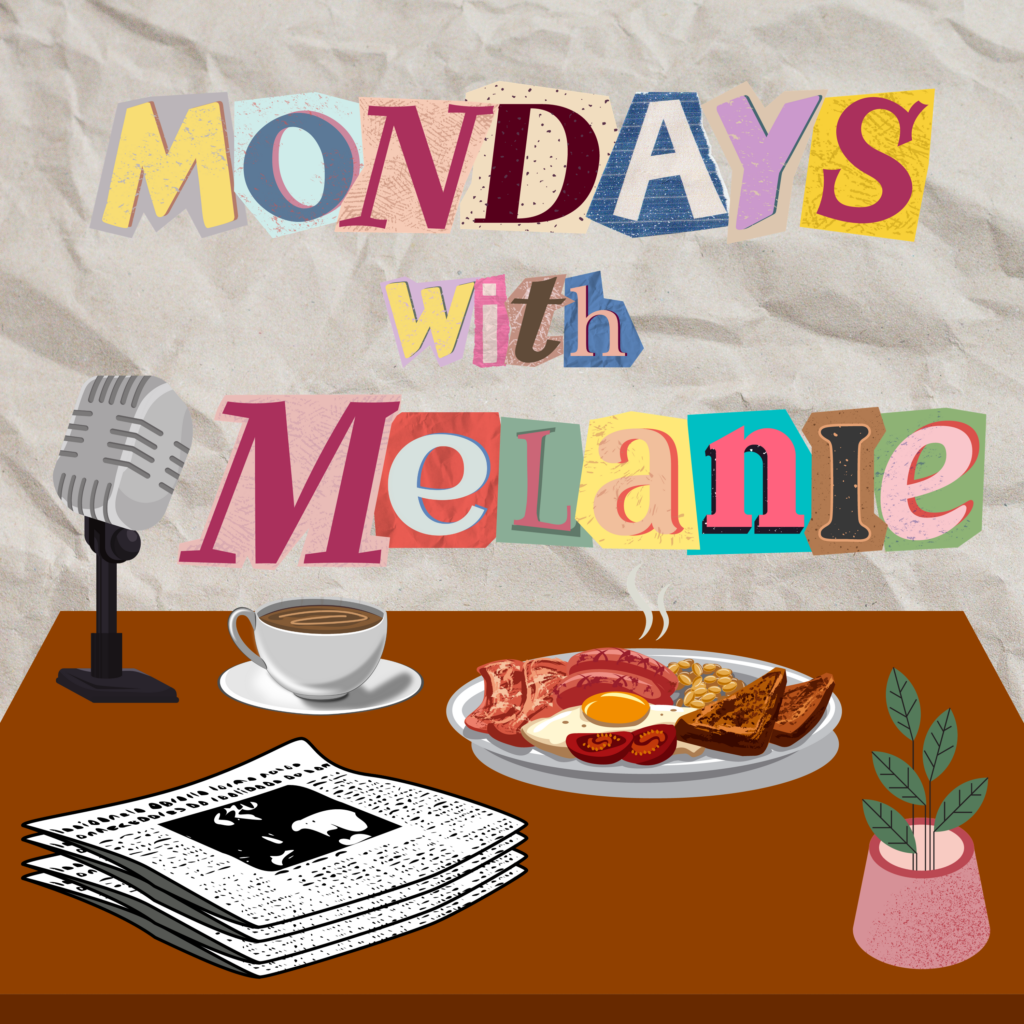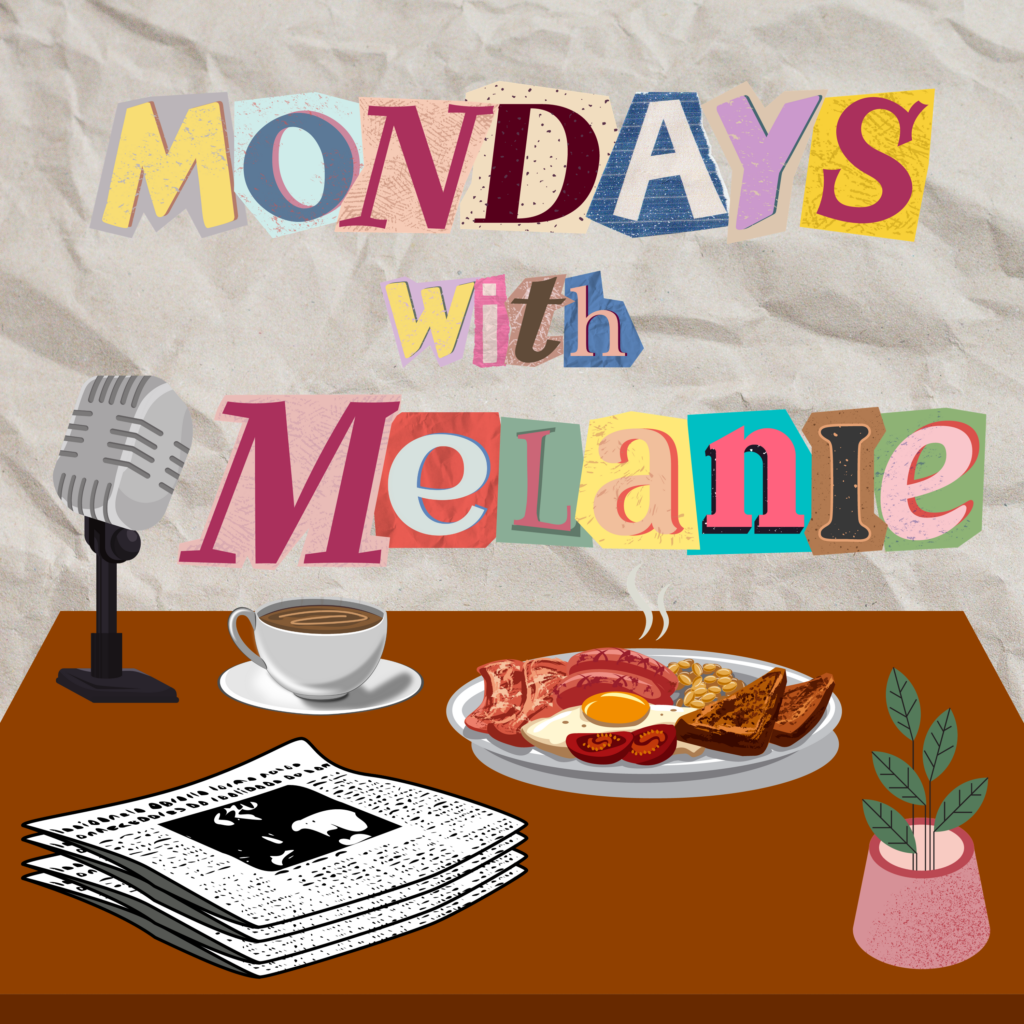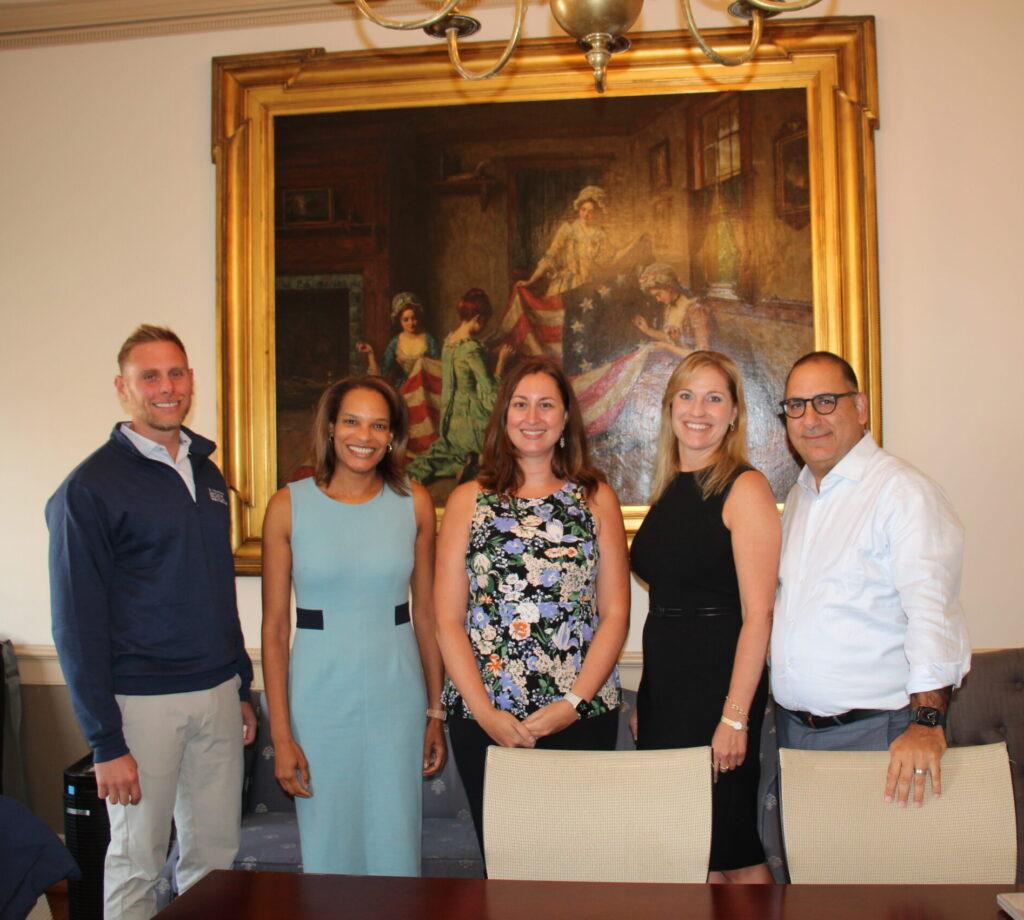In this podcast, science staffer Sahana Arumani (SOH ’25) interviews Connor Landers (SOH ’26), the winner of the “Rising Researcher” award at the Undergraduate Research Conference hosted by the School of Health on April 19th, 2023. Tune in to hear about Landers’ experience with research, his achievements at the conference and his advice for aspiring researchers.
Transcript
Sahana Arumani (SA): Welcome back to Community Corner! I’m your host Sahana Arumani. And on this episode, I spoke with Connor Landers, a freshman who presented his research at the Undergraduate Research Conference hosted by the School of Health. In this conversation, Connor shares his research journey and his experience presenting at the conference.
SA: All right, so my first question for you is more of a general one. And it’s how you kind of got started on your research journey, and what was kind of the catalyst for that?
Connor Landers (CL): Yeah, um, I would say that that initially actually started in high school for me. For my senior year, I was able to take an internship for credit. And I did so at a medical university. I had the fortunate opportunity of dissecting cadavers, and also studying histology, under a medical professor there. And then, when I came to– I did take a gap year. But then when I came to Georgetown, after taking a gap year and working at a hospital for that gap year, I knew that I wanted to get involved with research. So I attended the research, the undergraduate research, like conference fair, not sure which acronym they call it, but it was a fair they held in the fall semester, where all of the available researchers in the local area, you know, were there just kind of presenting what they had to offer and what their lab studies and what they focus on. So I went, I brought resumes, and I just kind of walked around and found what was interesting to me. A few reached back to me and then Dr. Keller’s lab is the one that I ended up choosing.
SA: Okay, wonderful. Just for the people who are listening, could you briefly describe your research question that you have decided to undertake?
CL: Ah, yeah, I guess technically, there are two research questions for what we were looking for. So the first was to study and see if there was a decline or chain in memory capacity in the hippocampus of a rat, between young and aged rats. So that was our first aim. And then once we did that, and we did find that there was a decline in LTP capacity in aged rats, we wanted to see if we could rescue that using amphetamine and acute amphetamine treatment in this scenario.
SA: Got it. Thank you. So now, we’re kind of shifting to the conference itself. So can you kind of talk me through what you did to prepare for this conference? And what were the most challenging and maybe the most fulfilling parts of that preparation process itself?
CL: Yeah, sure. Um, I would say so in terms of preparation, I wrote the abstract completely on myself. And then I brought it to my PI and to my postdoc, Yusuf, who I work with both who are on the poster, and they just kind of worked with me to get through that, but they thought it was actually great kind of how it was changed a few words here and there. And then that was the abstract that I submitted.
CL: When the URC accepted the abstract, and I found out that I would be having to make a poster, I started doing that. The problem was, I didn’t actually have any data. Now we had data from all of our experiments, but we didn’t have the program to analyze the data. So the one graph that you were actually able to see on my poster that showed really good results of rescuing the decline in aged rats with amphetamine, that data was all pulled manually, which took a very long time to do so. And I actually did so on the Tuesday right before the poster was due for submission. So it was definitely a scramble to get good presentable data, right before the presentation. But in regards to everything else, it pretty much came pretty easy. It just felt like standard protocol. I knew exactly what to go in– or what to write in the methods and materials section, stuff like that. So yeah.
SA: Thank you. So next, I was kind of wondering what your experience actually presenting at the conference was to various experts, judges, and also just to the lay audience.
CL: Yeah. So I truth be told, I actually didn’t know that it was going to be judged. So that took me aback a little bit, but it didn’t make me nervous at all because it wasn’t for a grade and you know, I’m just there having fun in my opinion, hopefully teaching some people about the cool research that I’ve been doing. So in terms of actual presentation, I felt very comfortable with it.
CL: And I was the actual one who brought it to my lab. They didn’t know that URC existed in their med lab. So I was the one who said, “Hey, there’s this thing. It exists. If we could get data if we could, you know, work together, is there a presentation that I could make around this?” And they thought, “Yeah, it’d be a great idea even with or without good data, like 100%, definitely try it.”
CL: For me, it had been an experience that was almost like repeated, I had a capstone project at the end of each year in high school. And we did something very similar, where we had to, for two hours, stand at a conference, and the entire community was invited, and we just basically summarized our years of work, or whatever we’re working on. Yeah, Project-wise. So I felt, I guess, I don’t know, prepared to be able to just do that, like a free-speaking, elevator-pitch kind of style.
SA: Got it, thank you. And what I would say like lessons or skills that you kind of took away, I know, you’ve had this experience before, but just from presenting and going through this whole process at the conference.
CL: Ah, that’s a good one. Um, I would definitely say that like, no amount of input or criticism is like too much. I ended up having, I want to say seven postdocs through the entire like, lab, go and look through my abstract in my poster. And some of them, they did make contradicting like recommendations. So those ended up– I had to figure out with my PI at the end, but I would definitely say take all the advice that you can get from any one, especially if they’re, you know, ahead of you in a field that you want to go into.
CL: And then for presentation, I mean, really, for something like that, where it’s not graded and that I guess like it is being judged, but I didn’t know: just go into it carefree. Be yourself. I was nervous. And I was like practicing presenting the day before. And then I was like, “Dude, no,” like, “you know, your research, you tell your friends about it at home, like you’re just like little bit of a nerd about this stuff. Just go and share. You’re fine.” So I would just say that. Yeah, just being true to yourself for the presentation.
SA: Got it. Thank you. And I know that you’ve received the Rising Researcher Award at this year’s conference. I was just wondering. Yeah, I was just wondering what your reactions to that were
a complete shock.
CL: I did not know. Like I said, previously, I did not know we’re being judged. And then I didn’t know like, what the awards were for, necessarily. Or what they could be, I knew that the oral speakers were open to awards. And that’s something that I actually didn’t even sign up for. Because I just knew as a freshman going in, like, there were going to be juniors and seniors who have been working on this. And they could definitely probably have something much more cohesive or timewise that they’ve put in or I mean, they are juniors. So in my opinion, I feel like I could have more opportunities to do this later down the line. But it was complete shock, getting the award.
CL: And furthermore, I actually received an email from Jan LaRocque. And she was a previous professor of mine from last semester, I found out that I was the first first-year to submit a poster. And I was also the first first-year to get the highest score from two judges to receive but yeah, so I was like, that’s really cool. Yeah.
SA: Wonderful. Thank you. So my last question for you is how you foresee research, you know, continuing to be a part of your life like even past undergrad because I know you seem kind of motivated to continue this project.
CL: Yeah, um, so I will say this semester with doing research definitely was a lot to like, take on and I started doing more time I gave more more of my time as I went on throughout the semester, about 10 to 12 hours a week, near the end. So it was definitely a lot, and I would say that this whole experience was very validating for that time and very, I guess what made it all worthwhile.
CL: So next steps would be hopefully to be getting paid to do this research, but we will see continuing in the fall and spring. I have been invited to stay in the Keller lab and/or work in the neuroscience lab where I have been doing this e-phys [electrophysiology] work. And they really liked the fact that I’m a freshman, because in their eyes, I’m not going to be a rotating PhD student or anything of that sorts that they could have me for the next four years, three now, potentially. So I think that’s something that I might really take them up on, opportunity-wise.
CL: And then for me, I’m pre-med right now. And I am focused, and I have my eyes on medical school. But this experience is really opening my eyes up to the path of research. My brother, he’s about five and a half years older than me, and he is currently a lab manager at a testing facility, and he does research himself. So I think it could be a field that I could see myself going into, especially having multiple connections around my life to it.
SA: Wonderful. So those are all my like official questions. But do you have anything to add at all? Or perhaps like any advice to, because you’re a freshman, like other people who might be maybe afraid of getting started in research? Like, what would you have to say?
CL: Yeah, I would definitely say, first off, don’t be. Right, I went in there. And I kind of was nervous, but just because I didn’t know what to expect. And I guess every situation or scenario really could be different. But the people who would be hiring you are people knowing that you want to give them your time, and that you’re willing to learn from them. So they’re willing to teach you and they’re willing to work with you and accept you. And it’s a really good symbiotic relationship there. So I guess that’s where, like, take some of the fear away, if you even I mean, even if there’s not like the conference where you can go and physically hand out resumes, if you just email a professor that you’ve found, that you’d like the research, talked about their research a little bit in the email, and ask if you could, you know, follow that up with a real conversation. That is something that could go a miles length, I mean, just starting your path on research.
CL: So really, I would say stick true to yourself, because you don’t want to be getting stuck on a project for months that you really wouldn’t be enjoying. And then also just give yourself grace because I mean, they know that you’re not going to be going in there knowing everything and that you are just there to learn. And I think that’s that’s the takeaway.
SA: That’s all! Thank you to Connor Landers for speaking to The Hoya. This podcast is hosted by Sahana Arumani, and edited and produced by Amna Shamim.



